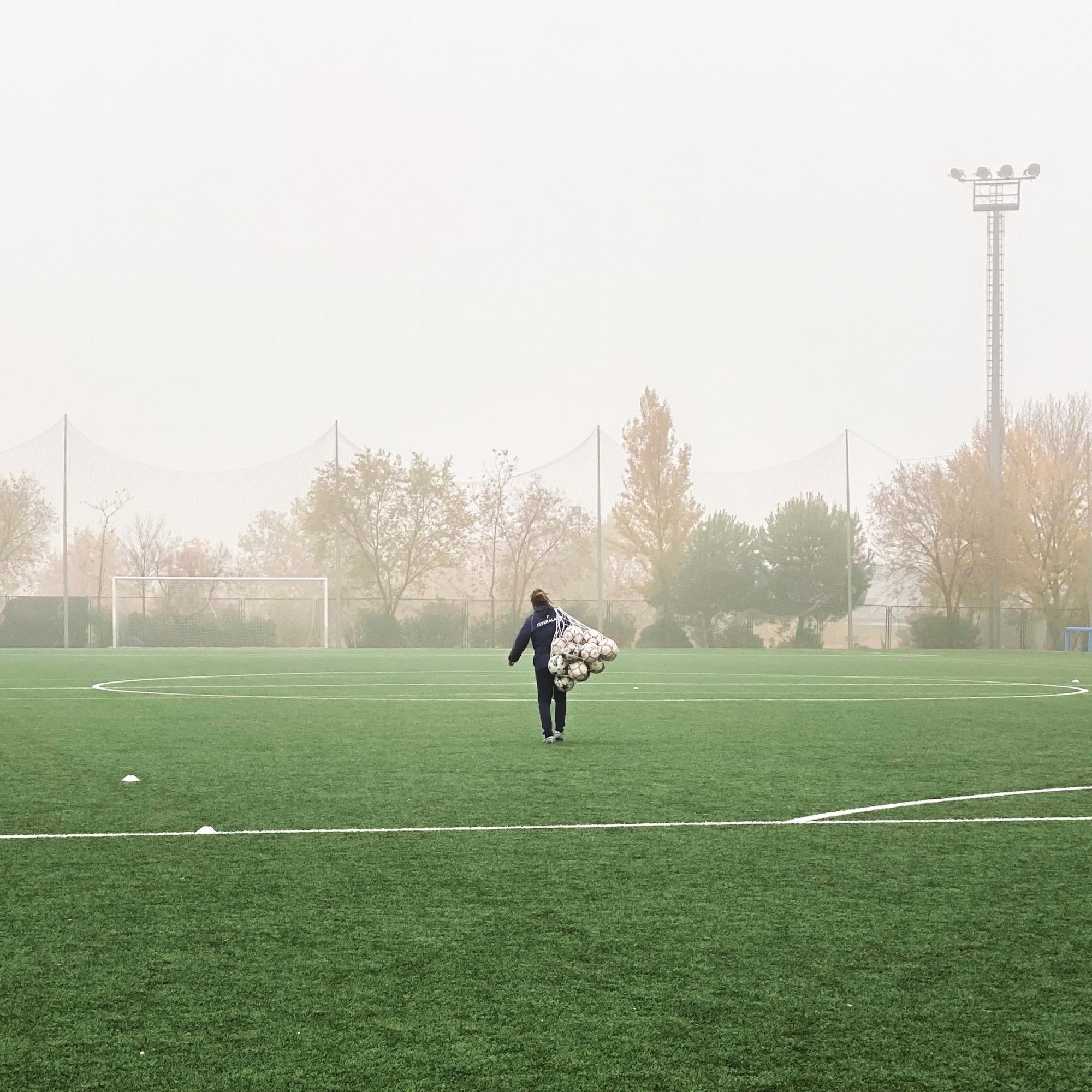BLUF: Countries have used sanctions to punish other countries and force policy changes since the BC era. Modern economic sanctions against countries, companies, and people are now one of the most obvious — and controversial — tools a country has. The world has united (for the most part) against Russia’s invasion of Ukraine and is using sanctions to enforce its dismay. But whether or not these sanctions will be enough to stop Russia’s war in Ukraine is debatable.
I’m currently trying to learn European soccer. Liverpool. Manchester. Premier. Champions. It’s a tricky breakdown, but I’m getting there. And nothing gets me more fired up than the intersection of sports and foreign policy.
*sanctions have entered the chatroom*
Since the invasion of Ukraine in February, the world has ramped up its imposition of sanctions on Russia. These sanctions have targeted companies, banks, goods, and individuals — including Russian oligarch Roman Abramovich. Mr. Abramovich has a net worth of more than $10 billion and happens to own FC Chelsea — a Premier League club. As part of the sanctions against Abramovich, FC Chelsea cannot sell tickets for games or merchandise, nor will it be able to buy or sell players on the transfer market. Following the invasion and the sanctions that followed, Abramovich announced that he had made the “difficult decision” to sell FC Chelsea. He must get a special license to do so, guaranteeing he won’t benefit from the sale. According to Abramovich, he “will not ask for any loans to be repaid” and “proceeds of the sale will be donated to war victims.”
So, what is the purpose of sanctioning individuals like Abramovich? Is it merely punishment? How have such “targeted sanctions” been used historically? And how exactly do they work?
STICKS AND CARROTS
Sanctions are one of the many tools in a country’s arsenal to penalize countries, people, groups, or businesses for certain behavior, generally carefully administered to change that behavior and advance foreign policy preferences. They’re also called “sticks” because they are used to tackle tough issues like human rights violations, counterterrorism, and conflict resolution, and punish states engaged in such activities.
Only time will tell on whether or not these expansive sanctions will change the course of Russia’s war in Ukraine. But one thing is certain; the major western powers have not backed down, and, if anything, they are just getting started.
The flip side of sanctions is carrots. The carrot-stick mechanism is the general theory (and the phrase alone has a whole debate) about soft and hard power in that you can punish bad behavior with sticks. Still, you can also reward good behavior with carrots. Think: We would like Genovia to stop developing made-up chemical agents. We ask them nicely to do so. When they do not cease and desist, we sanction their leadership and stop importing their only commodity: pears. This cripples their economy, so we remind them of our goal: Stop producing agent Z, and we will not only remove the sanctions, but we will agree to double our pear imports. Now you have offered carrots.
Simple right? Not quite.
A BRIEF HISTORY OF STICKS
If you want to go back, back in time, let’s go to 432 BC and the Athenian Empire. Traders from Megara were banned in the Empire’s marketplace, starving the rival’s economy. And boom, sanctions were born. Modern-day economic sanctions really got going with the formation of the League of Nations (known in its current state today as the United Nations). The organization imposed economic sanctions to pressure countries to fall in line with particular foreign policies, often limiting business and trade with countries like Cuba, Iran, Libya, North Korea, Syria, and Vietnam. World War II, the Gulf War, 9/11, the hacking of Sony Pictures by North Korea — and countless other events — have seen the implementation of sanctions.
It’s worth noting that significant research (like this, this, and this) has been done into the adverse impacts of economic sanctions and the populations most impacted by them, especially in cases like North Korea and Cuba. Kofi Annan, the former Secretary-General of the UN, stated in a 1997 report that “country-based sanctions tend to inflict the most harm on vulnerable civilian groups and can cause great collateral damage to third states.”
A good example of the negative impacts of sanctions include cases like those made with Saddam Hussein’s Iraq. Specifically, catch-all sanctions — across the board sanctions — can have harsh causal calamities on the general population in highly repressive and centralized regimes. For example, in 1991, in the wake of Operation Desert Storm, the UN Security Council adopted Resolution 687 to eliminate the Iraqi threat to regional security by removing all weapons of mass destruction and eliminating the ballistic missile program. Resolution 687 continued all previously applied UNSC sanctions until Iraq’s disarmament compliance was verified. However, these sanctions targeted dual-use items — think materials needed for water purification, sewage systems, healthcare, electricity generation, oil field equipment, and communications infrastructure — for such a prolonged period resulting in a devastating and disproportionate effect on the Iraqi people. Inevitably, the sanctions led to a humanitarian crisis that splintered the Permanent 5 (US, China, France, Russia, and the UK) unanimity causing uneven enforcement of sanctions and undermining their overall success in the suffering of the general Iraqi population.
But there are other takes, too. Some experts, like Richard Haass of the Council on Foreign Relations, argue that sanctions are often the best in the toolkit of foreign policy options when it comes to measures short of war. “Under the right circumstances, sanctions can achieve (or help to achieve) various foreign policy goals ranging from the modest to the fairly significant.” He also argues that the sanctions used in Iraq increased compliance with weapons of mass destruction-related sanctions, and those used against former Yugoslavia “contributed to the Serbian decision to accept the Dayton agreement.” Though there has been strong evidence to support the inequities caused by imposing sanctions, especially in authoritative and oppressive regimes, other evidence suggests that sanctions are partially successful around 33% of the time — not great but not the worst batting average of all time either.
Now Russia has entered that chat, and your options are limited. Hypothetically, they include sanctions and war. So which tool are you grabbing first?
Sanctions, of course! You’re not alone: Roughly 73% of Americans support the actions taken against Russia following its invasion of Ukraine.
WHAT SANCTIONING RUSSIA LOOKS LIKE
Let’s look at *some* of what we (read: America and a solid portion of the rest of the world minus some other dictators and authoritarian regimes because nothing screams evil empire boys club quite like dictators having other dictators’ backs. Looking at you, Belarus, Syria, North Korea, Eritrea, etc.).
People: So, we are going after people. Sanctions have been imposed on Russian government officials and their family members, including President Vladimir Putin’s adult children (do yourself a favor and go down that familial rabbit hole) and relatives of Foreign Minister Sergei Lavrov. The US, EU, and the UK have applied sanctions on more than 1,000 Russian individuals and businesses, including oligarchs (bougie men supporting Putin) — including Abramovich — you’re welcome for the circle back to FC Chelsea.
The world is also kicking Russian diplomats out of their countries, which is a classic f*ck you in most country-to-country conflicts. After photos showed the mass murders and possible genocide of Bucha, many countries expelled diplomats from their borders — falling short of ambassadors. Germany booted 40 Russian diplomats. France followed suit, expelling 35 Russian diplomats. Lithuania went all the way and expelled its Russian ambassador. And all that was after Ireland, Belgium, the Netherlands, and the Czech Republic kicked out 43 embassy staffers. Between the EU and the US, over 250 Russian diplomats and embassy workers have been sent packing. In most cases, Russia has responded by expelling respective country diplomats in tit-for-tat.
Money: Massive banking sanctions have been issued against major Russian banks and financial institutions, including Alfa Bank and Sberbank. Western countries have frozen the assets of Russia’s central bank, which stopped it from accessing $630 billion in foreign currency reserves. The move devalued the Russian ruble by 22%, pushing up the price of imported goods, and causing a 14% rise in Russia’s inflation. Buyers of Russian gas — though they are becoming fewer and fewer — now must cough it up in rubles as a measure to prop back up the state currency. The United States won’t allow any of the $600 million Russia holds in US banks to make loan payments, a move that is causing problems for Russia’s credit rating, which S&P has declared is in “selective default.” Finally, and perhaps most shockingly, some Russian banks have been removed from the international financial messaging system known as Swift, thus causing them to be unable to transfer money across borders — delaying payments to Russia for energy exports.
Energy: It’s heating up! The UK plans to ban imports of Russian coal and oil by the end of 2022, while the US has already banned all Russian oil and gas imports. Things are a bit more complicated for the EU, which gets a quarter of its oil and 40% of its gas from Russia, but has also declared it will switch to alternative supplies to make Europe independent from Russian energy “well before 2030” (it’s a starting point). And good ol’ Germany is holding out on the permission slip to open the Nord Stream 2 gas pipeline from Russia.
Travel: The US, UK, Canada, and EU banned Russian flights from their airspace, including private jets chartered by Russians. And it’s about to get trickier for wealthy Russians to get UK residency as they’ve stopped the sale of “golden visas.”
Goods: The UK, EU, and the US have issued expansive bans on exporting dual-use goods, such as semiconductors, jet engines, and oil refinery equipment. But luxury goods have also been banned from going to Russia, including vehicles, high-end fashion, and art. And the UK has also imposed a 35% tax on some imports from Russia, including vodka.
Fun find: sanctions tracker!
WHAT’S NEXT FOR RUSSIA?
Some experts have stated that sanctions are causing unwanted and unexpected pain to the close-knit oligarchs who usually support the Kremlin without question. But these sanctions are also making life more challenging for Russians. However, only time will tell on whether or not these expansive sanctions will change the course of Russia’s war in Ukraine. But one thing is certain; the major western powers have not backed down, and, if anything, they are just getting started.
That’s all for this one, babes.
No pressure. No bullshit. Just, THE BABES BLUF.
THE BABES BLUF (bottom line up front) is a different kind of current affairs and lifestyle blog that talks about issues in a way women (and men!) can relate to and enjoy. To read more from THE BABES BLUF, visit www.thebabesbluf.com, subscribe never to miss a #BLUF, and check them out on Twitter or Instagram. For more THE BABES BLUF pieces, see here.





















